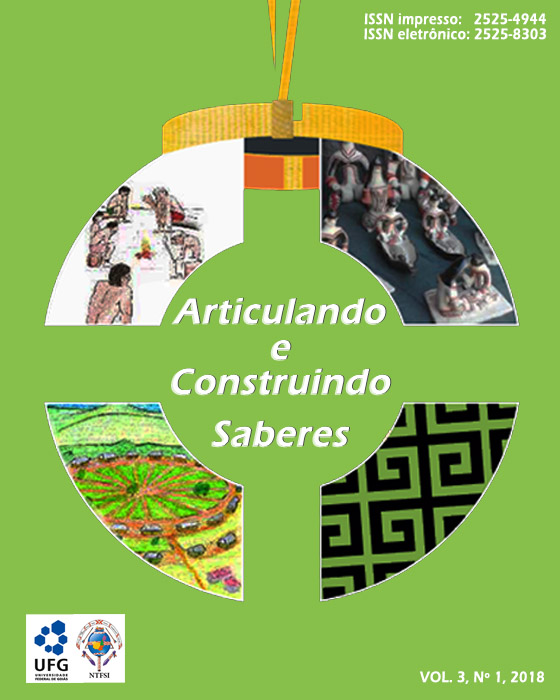O Curso de Licenciatura Intercultural para a Educação Básica Indígena no Estado do Maranhão
DOI:
https://doi.org/10.5216/racs.v3i1.55374Keywords:
Indigenous school education, Indigenous peoples in Maranhão, University education, UEMAAbstract
In Brazil, the relationship between indigenous peoples and the colonizer has always been conflicting, both physically and symbolically. Although interrelated, conflicts on the symbolic plane bring about the removal of diverse social practices, through, but not exclusively, catechesis and non-indigenous schooling, in view of the fact that the assimilationist paradigm, which guided the relations between indigenous peoples and the central power, lasted for almost four hundred years, and was followed by the integrationist paradigm, implemented by the SPI. The change of this paradigm was only possible with the Federal Constitution of 1988 and later with the LDB (Law of Guidelines and Bases of National Education) of 1996, which ensured the principles of differentiated education for indigenous peoples and the provision of bilingual and intercultural school education, with a view to strengthening socio-cultural practices and the linguistic diversity of indigenous peoples. This work aims to present the experience of the Intercultural Licentiate Course proposed by the State University of Maranhão, which, among some of its formal objectives, intends to reverse the deficit of indigenous teachers working in indigenous schools, besides guaranteeing the access of these people to cumulative universal knowledgeDownloads
Download data is not yet available.
Downloads
Published
2018-10-11
How to Cite
PAULA, Aldir Santos de; FURTADO, Marivania Leonor Souza. O Curso de Licenciatura Intercultural para a Educação Básica Indígena no Estado do Maranhão. Articulando e Construindo Saberes, Goiânia, v. 3, n. 1, 2018. DOI: 10.5216/racs.v3i1.55374. Disponível em: https://revistas.ufg.br/racs/article/view/55374. Acesso em: 10 feb. 2026.
Issue
Section
Artigos
License
Authors authorize Articulando e Construindo Saberes to publish an article, if accepted, signing their contribution as original and not submitted to another publisher for publication. If accepted and published, Articulando e Construindo Saberes articles have a Creative Comons CC-BY license.




